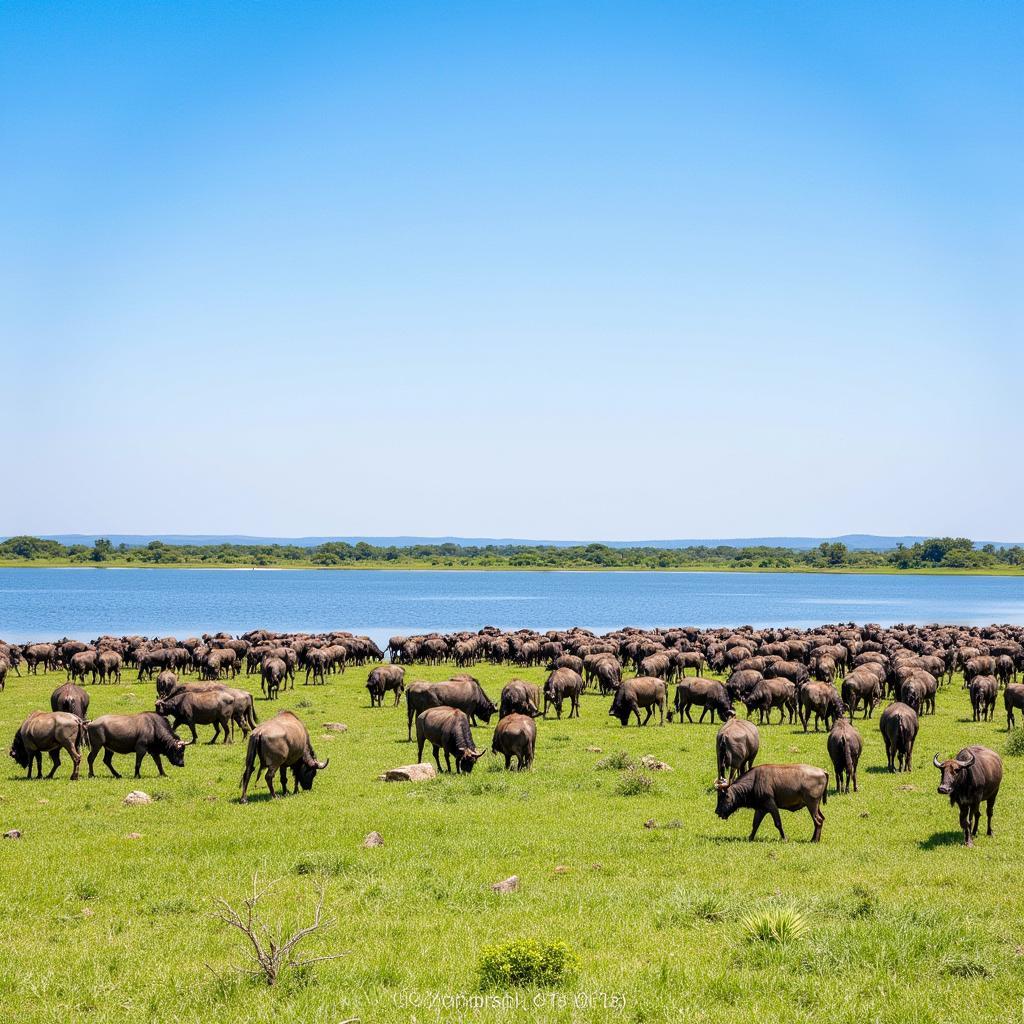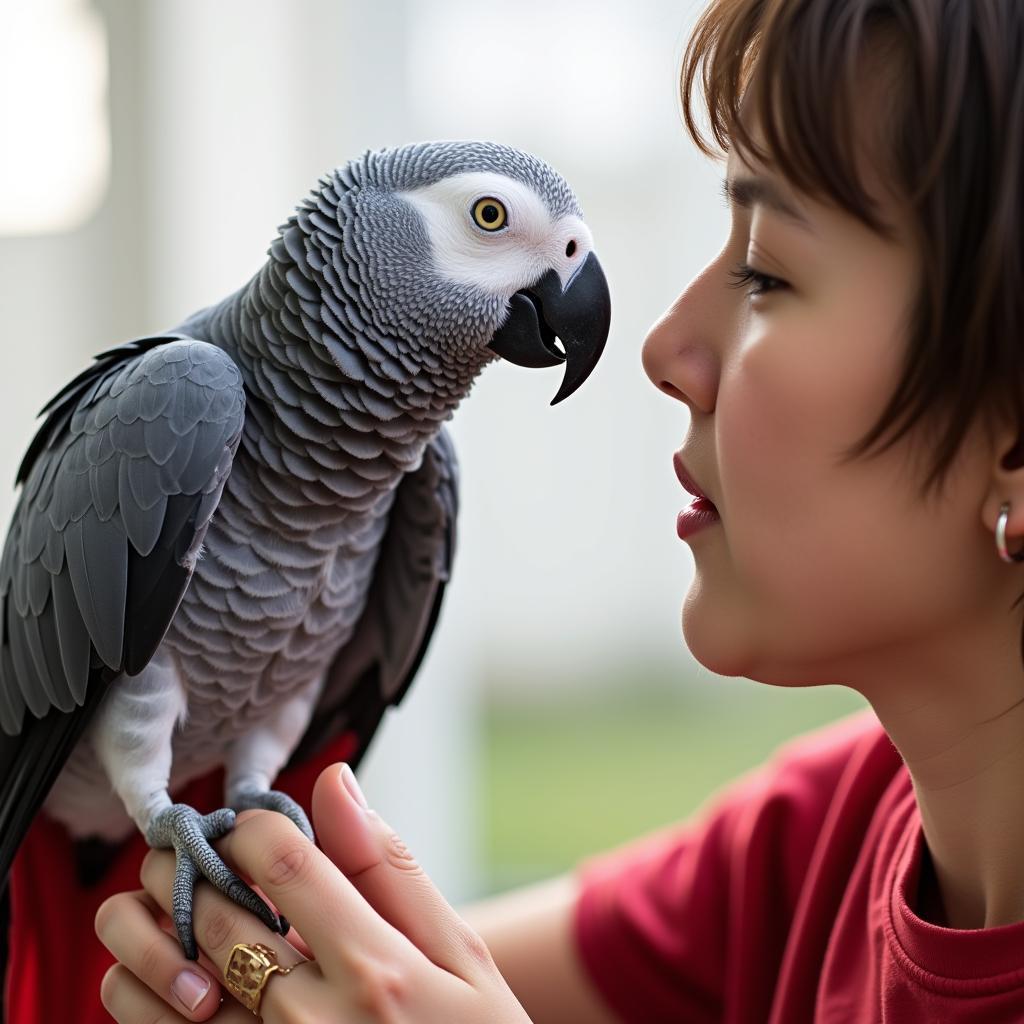Unveiling the Wonders of African Elephant Reproduction
African Elephant Reproduction is a fascinating and complex process, crucial for the survival of these magnificent creatures. Understanding this intricate cycle offers valuable insights into their social structure, behavior, and the challenges they face in a changing environment. Read on to delve into the remarkable world of African elephant reproduction. african elephant reproduction rate
The Elephant’s Reproductive Journey: A Timeline of Life
African elephants, the largest land animals on Earth, have a long lifespan and a correspondingly lengthy reproductive cycle. Female elephants, known as cows, reach sexual maturity around 10-12 years of age, while males, called bulls, mature slightly later, around 12-15 years. However, bulls typically don’t breed successfully until they are in their late 20s or even 30s, when they are large and strong enough to compete with other bulls for mating rights.
The Musth: A Crucial Factor in African Elephant Reproduction
Musth, a periodic hormonal state in bull elephants, plays a significant role in reproduction. During musth, bulls experience a surge in testosterone, becoming highly aggressive and competitive. This period is crucial for establishing dominance hierarchies and securing mating opportunities. Physical signs of musth include temporal gland secretions, urine dribbling, and a characteristic musky odor.
Mating Rituals and Behaviors
African elephant mating is often preceded by elaborate courtship rituals, involving vocalizations, touching, and mutual displays of affection. The receptive cow emits low-frequency calls to attract bulls, and the dominant bull in musth will typically have exclusive mating rights. The actual mating process is brief but powerful, highlighting the physical strength of these impressive animals.
Gestation and Birth: Welcoming a New Calf
After successful mating, the cow embarks on a long gestation period, lasting approximately 22 months – the longest of any mammal. This extended period allows for the full development of the calf, which is born weighing around 100-120 kg. The birth process is a communal affair, with other females in the herd assisting and protecting the mother and newborn. The calf remains dependent on its mother for several years, learning crucial survival skills and social behaviors from the herd.
How long is an elephant pregnant?
The gestation period of an African elephant is approximately 22 months.
How often do African elephants reproduce?
Female elephants typically give birth every 3-6 years, depending on environmental conditions and resource availability.
Dr. Anita Isimilo, a renowned wildlife biologist specializing in African elephants, notes, “The reproductive cycle of African elephants is intrinsically linked to environmental factors. Resource scarcity and habitat loss can significantly impact breeding success and calf survival rates.”
Threats and Conservation Efforts
Habitat loss, poaching, and human-wildlife conflict pose significant threats to African elephant populations and their reproductive success. Conservation efforts are crucial for protecting these iconic animals and ensuring the long-term survival of the species. These initiatives include anti-poaching patrols, habitat preservation, and community-based conservation programs.
The Future of African Elephant Reproduction
Understanding the intricacies of African elephant reproduction is essential for developing effective conservation strategies. By protecting their habitats and mitigating threats, we can help ensure that these magnificent creatures continue to thrive for generations to come.
african bush elephant reproduction
In conclusion, African elephant reproduction, a complex and fascinating process, is vital for the survival of these magnificent animals. Understanding the various stages of their reproductive journey, from musth to birth, provides valuable insights into their behavior, social dynamics, and the challenges they face. By supporting conservation efforts and protecting their habitats, we can contribute to the future of African elephant reproduction and ensure the long-term survival of this iconic species.
FAQ
- What is the gestation period of an African elephant? (Around 22 months)
- When do female elephants reach sexual maturity? (Around 10-12 years old)
- What is musth in bull elephants? (A periodic hormonal state marked by increased testosterone and aggression)
- How often do female elephants give birth? (Every 3-6 years)
- What are the major threats to African elephant populations? (Habitat loss, poaching, and human-wildlife conflict)
Related Content
- Curious about other African wildlife? Explore the diverse world of african ant species.
When you need assistance, please contact us at Phone: +255768904061, Email: kaka.mag@gmail.com, or visit our address: Mbarali DC Mawindi, Kangaga, Tanzania. Our customer service team is available 24/7.

